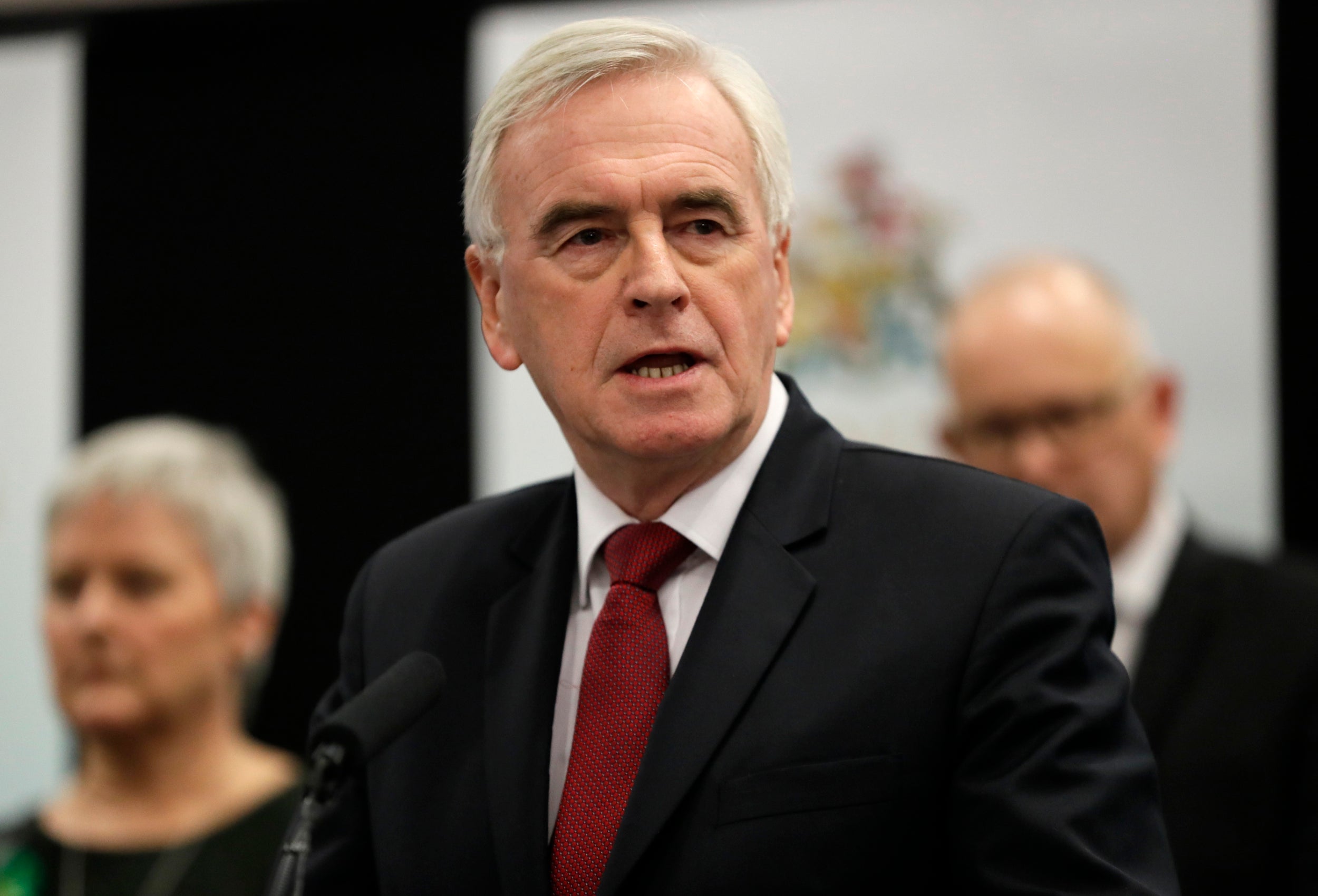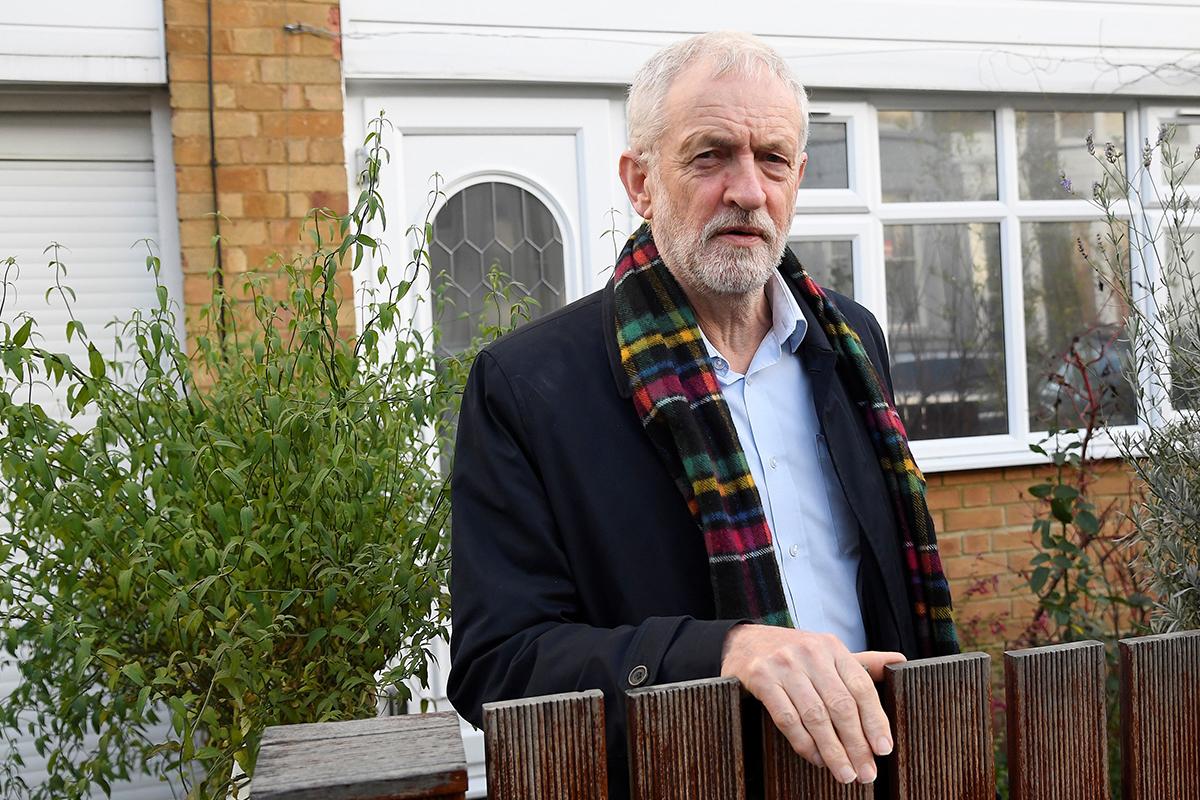Jeremy Corbyn must resign within maximum of two months after Labour’s devastating election defeat, Neil Kinnock says
Exclusive: Lord Kinnock says ‘Corbyn must own this devastating defeat’

Jeremy Corbyn must resign as Labour leader within a maximum of two months and “own” the party’s worst electoral defeat of the post-war era, Neil Kinnock has said.
As Boris Johnson was returned to Downing Street on Friday with the greatest Tory majority since Margaret Thatcher’s 1987 landslide, the former Labour leader warned party members not to “seek excuses or alibis” in an attempt to explain the crushing defeat.
And in comments apparently intended as a warning to the party not to select another leader in Mr Corbyn’s mould, Mr Kinnock said his successor must embody “patriotic” values and restore Labour’s credibility as a “party of security”.
His comments, to The Independent, came as potential candidates for the leadership began jockeying for position, with declarations expected to take place over the coming week.
Shadow Brexit secretary Sir Keir Starmer and shadow foreign secretary Emily Thornberry, as well as women and equalities spokesperson Dawn Butler, are thought to have leadership bids prepared, while shadow education secretary Angela Rayner and shadow business secretary Rebecca Long-Bailey were understood to be in discussions over the weekend about whether one or both should stand. Shadow justice secretary Richard Burgon is believed to have his eye on the deputy leader’s post, and is ready to back Ms Long-Bailey for the top job.
Backbencher Jess Phillips did not quash speculation that she might throw her hat into the ring, telling ITV News: “Of course somebody like me could be the leader of the Labour Party. Will I be the leader of the Labour Party is an entirely different question. I think we are going to do what needs to be done in the Labour Party and I will absolutely be part of that solution.”
Ms Thornberry refused to discuss her plans, saying only: “Let’s have a period of mourning. We need to have a chance to stop and think. I have nothing else to say.”
But John McDonnell confirmed he will stand down from the shadow cabinet when Mr Corbyn goes, and said: “I’ve done my bit.”
Speaking after Thursday’s general election delivered Labour’s worst result since 1935, with a net loss of 60 seats, Mr Corbyn said he will quit in “the early part of next year” but stay on until a successor is in place.
His announcement sparked frustration and anger within the party, including among former MPs who blamed him for the loss of their seats on Thursday.
Mr McDonnell dismissed claims that Mr Corbyn was “the wrong person” to take Labour into the election, sticking firmly to the line consistently pushed by those around the leader in the past few days that it was the domination of the debate by Brexit that doomed their campaign.
But former Bishop Auckland MP Helen Goodman insisted that “the biggest factor was obviously the unpopularity of Jeremy Corbyn as the leader”, while Anna Turley, who went down to defeat in Redcar, said that leadership was “absolutely” a bigger factor than Brexit.

Ex-shadow Brexit minister Jenny Chapman, ousted from her seat in Darlington, warned that if the party got the succession wrong, it risked “the end of the Labour movement”.
Former cabinet minister David Blunkett called on the unions to use their clout on Labour’s ruling National Executive Committee (NEC) to deliver the prompt removal of the leader and ensure that his replacement is not “another Corbyn”.
He blamed the catastrophic defeat on a “childish cult” around Mr Corbyn and said that if they refused to go, the remainder of the parliamentary party should “declare themselves to be ‘the Labour Party’, take on any legal challenge and present an alternative social democratic programme to the British people”.
Lord Kinnock, who also suffered two losses at the ballot box as Labour leader, told The Independent: “He [Corbyn] must own this devastating defeat and go after a maximum of two months, starting in January a leadership election.”
“It will be vital for Labour members at every level to heed what they heard on countless doorsteps and not seek excuses or alibis,” he added.

Addressing the future direction of the party, he continued: “They must demand a leadership – not only a leader – that embodies the practical, patriotic and principled values of British democratic socialism and restores Labour’s credibility as a party of security and opportunity for the whole community. Our country depends on that.
“Their only assets will be energy, time, a clear sense of realistic purpose and the knowledge that Johnson’s illusions will become manifest, and when enough people rumble him, they will tumble him if we strive to earn broad public appeal. It’s going to be a long slog so the sooner they get started on honest recognition and hard work, the better.”
Whoever wants to win the leadership race will need to secure backing from the trade unions, who wield significant influence over the Labour Party’s machinery.
Union sources told The Independent that the next leader should likely be a candidate from outside London, ideally a woman, putting potential candidates such as Ms Long-Bailey and Ms Rayner in the frame.
However, Mr Starmer – who represents a London constituency – also made inroads with union bosses at their annual gathering in September. A trade union source said: “Keir has been reaching out across the party. He was very much speaking the language of the unions in his TUC speech.”
A source at an affiliated union said: “Trade union leaders are practical by nature. Even those who backed Jeremy Corbyn and still do, they see that we have to deal with the reality.
“There is no point in the left blaming the right and the right blaming the left for what has happened. The party has to drag itself out of this mess.
“A team might be the solution. North/south, left/right, man/woman, in order to bring the movement together.
“This is a really critical time for the Labour Party. Get this wrong and we might be finished. But get it right and we can really rebuild.”
A poll showed more of those who voted Labour in 2017 and defected at the general election on Thursday did so because of the party’s leadership, rather than its Brexit stance or the radical economic agenda in Mr Corbyn’s manifesto for government.
Despite his claim the election was “taken over ultimately by Brexit”, just 21 per cent cited this as their main reason for not backing Labour, compared with 37 who pointed to Mr Corbyn’s leadership.
Ms Phillips said anyone denying that the party had a problem had “got their head in the sand”.
“A huge amount of change needs to happen in the Labour Party and it isn’t just about the leader or just about Brexit or just about the manifesto,” she said. “It’s about a worldview. It’s about so much that we have lost trust with the public, on that we have to rebuild, but it is all totally rebuildable.
“We have to go out and actually talk to people. We have to not patronise people or talk down to them or dismiss people because one thing about them we don’t like. The Labour Party has got a bit self-indulgent. It needs to allow the country to be a little bit superior to it for a while, until it gets back in touch with them.”
Speaking on Friday, Mr Corbyn said the NEC will meet in the “early part of next year” to discuss the succession process.
“I was elected to lead the party and I think the responsible thing is not to walk away from the whole party,” he added. “I’ve done everything I could to lead this party.”
Mr Corbyn could follow Lord Kinnock’s example, who stayed in post for the duration of the leadership contest after losing his second general election to John Major’s Conservatives in 1992.
Speaking almost three decades ago, Lord Kinnock told Labour activists: “I will not be seeking re-election as leader of the Labour Party. In order to ensure that the new leadership elections can be completed without delay, I will be proposing to the National Executive Committee meeting tomorrow that the elections be held as quickly as proper organisation allows. My resignation from the position of the leader of the Labour Party will take effect on the date of the elections.”
Join our commenting forum
Join thought-provoking conversations, follow other Independent readers and see their replies
Comments